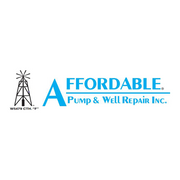Why You Need Water Testing If You Have a Baby

If you have an infant at home, there are extra precautions to take when using a water well. Well inspections and testing are essential for identifying contaminants that could affect your child’s health. Here’s what you should know about nitrate, a compound that’s particularly harmful in the first few months of life.
How Does Nitrate in Water Affect Infants?
Nitrate is a naturally occurring compound, but it also comes from human-made sources, such as fertilizers and farm waste. The nitrogen from these products combines with bacteria in the soil to produce nitrate. This then seeps into the groundwater, resulting in contamination.
The U.S. Environmental Protection Agency (EPA) considers less than 10 milligrams of nitrate to a liter (10 mg/L) a safe level for most people—but not for infants. Nitrate intake reduces the ability of blood to carry oxygen. In children younger than 12 months, who have less stomach acid, it takes longer for red blood cells to recover from oxygen loss, causing methemoglobinemia. Also known as blue baby syndrome, this condition could lead to severe illness in infants.
What Are the Signs of Blue Baby Syndrome?
If your child exhibits the symptoms listed below, they may have nitrate-induced methemoglobinemia.
-
Bluish Skin Color: Insufficient oxygen causes changes in skin color. For infants with darker skin, this is evident on the lips, insides of the mouth and nose, and nail beds.
-
Illnesses or Infection: A mild to moderate condition creates severe cold-like symptoms, such as diarrhea and vomiting.
-
Shortness of Breath: Lack of oxygen in the blood affects a child’s breathing. Gasping, suffocating, or difficulty taking in air are common signs of methemoglobinemia.
How Can You Keep Your Family Safe?
 While nitrate often exists in water supplies in some quantity, there are a few ways to ensure elevated levels don’t affect the health of your family.
While nitrate often exists in water supplies in some quantity, there are a few ways to ensure elevated levels don’t affect the health of your family.
First, have the well inspected regularly. Nitrate is odorless and tasteless, so the only way to detect it is through routine water testing and water well inspections. This is especially crucial after flooding, heavy rains, chemical spillage, or septic system failure, since effluent could permeate the ground.
If your supply tests positive for high levels of nitrate, the EPA recommends installing water treatment systems. Ion-exchange reverse osmosis and electrodialysis effectively remove nitrate from water.
When you have a baby at home, ensure the quality of your supply with water testing from Affordable Pump & Well Repair. Proudly serving the community across La Crosse, WI, they provide a range of water well services, including well inspections, tank repairs, and pump replacements. Whether you need minor maintenance or a new installation to solve your water quality issues, they’ll find a solution that fits your needs and budget. Call (608) 788-6451 to schedule testing, or learn more about their work online.
About the Business
Have a question? Ask the experts!
Send your question

